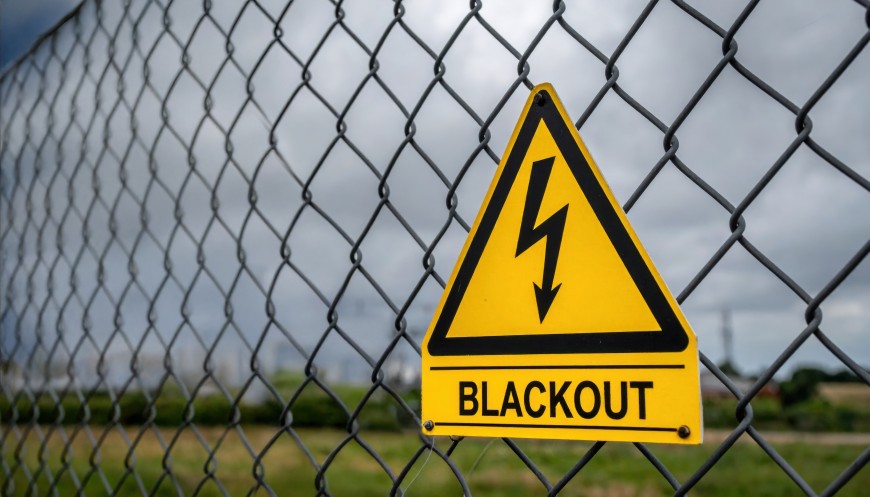Blackout in Spain and Portugal
How decentralized energy clusters can secure the power supply
2025/05/05 by SWa
Experts from the reasearch field E+E at TU Darmstadt will analyze the causes of the power outage and show how innovative energy systems and resilient infrastructures can prevent future blackouts.

Professor Florian Steinke, Principal Investigator at the research field E+E at the Technical University of Darmstadt, recently commented in the Frankfurter Allgemeine Zeitung (FAZ/paywall) on the causes and possible preventative measures in connection with the recent blackout in Spain and Portugal. In the article, Steinke explains that the increasing dependence on renewable energies in combination with a lack of grid stability can increase the vulnerability of the European electricity grid.
Professor Matthias Hollick, Principal Investigator at the LOEWE Center emergenCITY, also warns of the danger of large-scale cyber attacks which, in combination with infrastructural weaknesses, could lead to widespread power outages. The LOEWE Centre emergenCITY is therefore focusing on the development of resilient, decentralized energy systems that rely in particular on renewable energies such as photovoltaics and battery storage.
Acts of sabotage are also increasingly coming into focus in Germany, as an incident in Albig, Rhineland-Palatinate, shows. Professor Jutta Hanson, Principal Investigator at E+E, warns of the risks of targeted attacks on electricity infrastructure in an interview on tagesschau.de. She points out the danger of targeted acts of sabotage, such as in the case of a power pylon that was sawed down in Albig, Rhineland-Palatinate. Hanson emphasizes that such attacks could significantly endanger the grid, as not every pylon can be monitored. In addition, unexpected current leaks could be life-threatening: “If just one conductor touches the ground, the grid may not shut down, and then there is a risk of a very large voltage spreading across the ground for someone who is still nearby.”
“The combination of renewable energies and a lack of grid stability significantly increases the vulnerability of the electricity grid.”
Prof. Dr. Florian Steinke
Energy islands as a solution


Steinke highlights “energy islands” as a potential approach to increasing resilience. These decentralized, self-sufficient energy systems could act as stable islands in the event of widespread power outages and ensure security of supply in affected areas. He refers to current projects in the research field E+E that are looking into the implementation of such systems.
In addition to technical solutions, Steinke also emphasizes the need for greater cooperation at European level. In view of increasing electrification and the expansion of renewable energies, European networking must be strengthened in a targeted manner in order to minimize system risks and increase the resilience of the electricity grid.
“A coordinated approach in Europe can help to identify weak points at an early stage and rectify them in a targeted manner,” says Steinke.
Steinke also emphasizes that the integration of modern storage technologies, such as battery storage or hydrogen systems, is essential to compensate for fluctuations in renewable energy production. The combination of intelligent load management and improved storage infrastructure could help to prevent power outages in the future.
Sources:
The full article was published in the FAZ on May 5, 2025 and offers comprehensive insights into the background and consequences of the blackout in Spain and Portugal as well as current research approaches in the field of energy islands, grid stability and cyber attacks.
For TU members, the FAZ article from 05.05.25 is available here free of charge:

